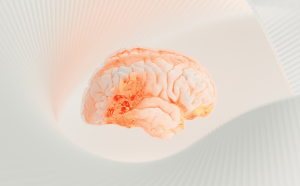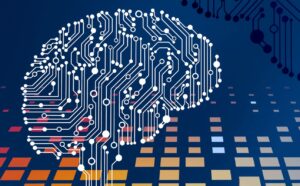Written by: Indu Navar, Founder and Chief Executive Officer, EverythingALS
Vision 2030: AI's Transformative Impact in Eradicating ALS and Complex Diseases
In the next decade, under the strategic umbrella of Vision 2030, we stand on the brink of a medical revolution, one fueled by the remarkable capabilities of Artificial Intelligence (AI). AI’s role in reshaping our approach to complex diseases like ALS (Amyotrophic Lateral Sclerosis) is not just about fostering hope; it is about creating concrete solutions, aligning with the goals of Vision 2030 to not just manage, but discover root causes, prevent, cure, and restore function to those suffering from this dreaded disease.
Unveiling the Complex Tapestry of Disease
The journey towards curing diseases like ALS is intricately complex. These diseases present a web of genetic, environmental, and biological factors that intertwine in ways previously indecipherable. AI, with its unparalleled data processing prowess, and extraordinary ability to learn, is a key tool in disentangling these complexities. By analyzing vast datasets – from genetic codes to patient health records – AI can identify patterns and links that escape human analysis, aligning with Vision 2030’s goal of precise and personalized treatment strategies.
Revolutionizing Drug Discovery and Development
AI’s application in drug discovery and development is poised to undergo a transformative shift as envisioned in Vision 2030. Traditional methods, often slow, inaccurate, and expensive, are set to be revolutionized by AI. It can simulate and predict how different compounds will interact with biological systems, identifying promising drug candidates more rapidly. This acceleration not only fast-tracks the development of efficacious new drugs but also aligns with Vision 2030’s mandate to make treatments more accessible and effective.
Optimizing Clinical Trials
The optimization of clinical trials, a critical component of Vision 2030, is greatly enhanced by AI. By analyzing diverse patient data, AI can help design more effective and inclusive trials. It can also predict which patients are likely to benefit from a treatment, thereby increasing the success rates of clinical trials, a key objective in the Vision 2030 framework.
Fostering Global Collaboration
AI’s role in medical research promotes a new era of collaboration, a cornerstone of Vision 2030. AI systems will connect researchers worldwide with an ecosystem of pharmaceutical companies, hospitals, and other participants dedicated to our goals, enabling them to share insights and data more efficiently. This global collaboration is crucial in accelerating the pace of discovery and exploring new treatment avenues.
Empowering Patients and Caregivers
AI-driven tools and applications, central to Vision 2030’s patient-centric approach, can offer real-time monitoring and support, improving life quality for patients and easing the burden on caregivers.
The Path Ahead with Vision 2030
As we progress towards 2030, it is crucial to approach AI with balanced optimism and practicality. AI offers powerful tools, but its success relies on the continuous input and oversight of skilled medical professionals to ensure its effective and ethical application.
The next decade, under the banner of Vision 2030, will undoubtedly be a defining period in medical science. With AI leading the charge, we are moving towards a future not of mere possibilities, but of achievable goals; a future where daunting challenges in curing complex diseases are surmounted, where the hidden intricacies of these conditions are unraveled, and where hope translates into healing.
In this brave new world, AI is more than a technological tool; it is a key player in driving us towards a healthier, brighter future for all, fulfilling the promises and potential of Vision 2030.





